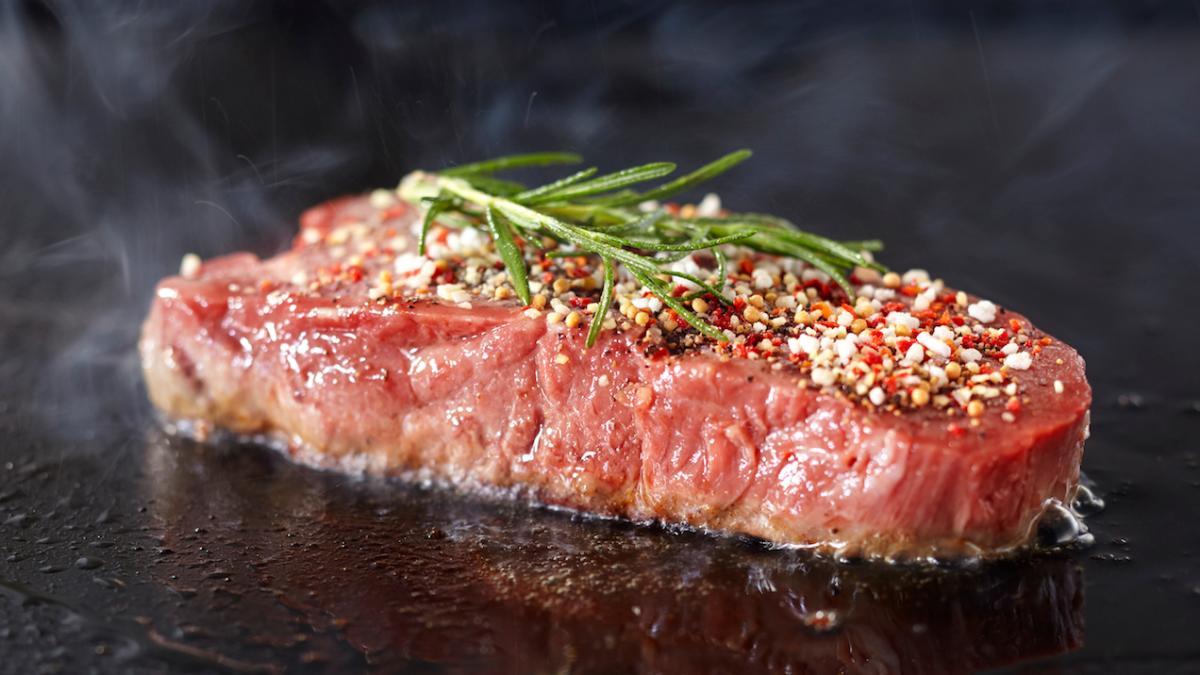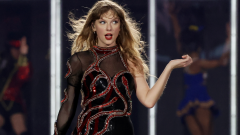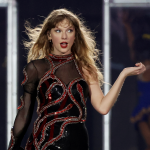
In support of the Global Climate Strike – a week of action to demand climate justice, from September 20 to 27 – Pedestrian Group is doubling down on content that educates and empowers you to do your bit for our planet. Click here to learn more about the global movement fighting for our future.
About five years ago, I started eating meat. My parents are veteran vegetarians, so I grew up on a meat-free diet. I never really developed a taste for meat as a kid – it wasn’t until I was in my late twenties and really getting into food and cooking that I started broadening my gastronomical horizons to include the joys of the (literal) flesh.
[jwplayer va98lbOs]
But this new dietary expansion brought with it a conundrum. As the planet hurtles towards climate apocalypse, it’s become common knowledge that a meat-based diet is one of the biggest contributors to global warming.
Agriculture, particularly factory farming, contributes tonnes of methane to the atmosphere, and sucks up shocking amounts of resources – it’s estimated that one kilo of meat can require between 5,000 and 20,000 litres of water to produce. According to research from 2016, if everyone in the world switched to a plant-based diet, we’d cut greenhouse emissions by two thirds.
Meat production, on the whole, is also a profoundly inhumane industry.
In Australia, 90% of pigs and most chickens raised for human consumption are kept in factory farming conditions – cramped, unhygienic, distressing environments where they are unable to act upon natural instincts to nest, forage, roost, and reproduce. It does not feel good to contribute to the needless suffering of the approximately 70 billion farm animals currently being raised for slaughter, just because I really, really like salami.
Veganism is the fastest-growing diet worldwide, with most adherents citing the above reasons – global warming and ethics – for their switch to a plant-based lifestyle. And excitingly, the market is responding to the call for good meat alternatives, with a whole bunch of extremely palatable replacements for animal protein hitting supermarket shelves worldwide.
That being said, though, veganism is not the ultimate solution. Putting aside the fact that demands for soy protein cause mass deforestation in order to make space for monoculture plantations that in turn reduce biodiversity and put pressure on pollinators, it’s a dietary restriction that for many people can feel too extreme, too expensive, and too time consuming – and once something’s in the “too hard” box, it becomes real easy to ignore it altogether.
So how can you approach being an omnivore in a more ethical and sustainable way, if you don’t want to completely ditch meat from your diet?
It’s something I’ve been thinking about for pretty much the last five years, and here’s a list I’ve come up with to eat ethical meat.
1. Eat Less Of It
The mainstream Australian diet is still firmly founded on a big serving of meat, three times a day. Bacon and eggs for breakfast, meat pie for lunch, steak and three veg for dinner? An ideal balanced menu, according to like 80% of the population!
But simply replacing two meals a day – or a couple days a week – with vegetarian options cuts your meat consumption, and therefore your farming-related carbon footprint, down by a huge amount.
2. Eat All Of It
I’m talking organ meat, y’all! Our meat-eating practices have become increasingly wasteful as we’ve become pickier about the cuts we eat. Fortunately a bunch of food influencers (sorry for using that word) have popularised nose-to-tail ethical meat eating, and there are a bunch of excellent recipes for “variety meats” (organs, ears, heads… you get the gist) that both taste delicious and soothe your sense of responsibility.
Plus, these cuts tend to have a bunch more nutritional value than more standard hunks of meat, and because you’ll need to head to your local butcher to get them, you’ll be supporting local businesses and the farms that supply them, too.
3. Eat Wisely
Speaking of suppliers – if you’re cutting back on eating meat every day, then you should be able to afford getting choosy with who you buy your cuts from.
This is a great list of ethical farmers who raise their animals humanely. Check out your local farmers market and ask the stallholders questions about how they raise their animals, and purchase accordingly. You might be paying $25 for a couple hundred grams of bacon, but it’s gonna be the best damn bacon you ever had, and you can feel good about buying it.
4. Eat The Problem
This is my personal approach to ethical meat eating: I’m talking game, baby. I’m fortunate enough to live in Tasmania, where wallaby and roo meat is very popular and widely available, along with deer, rabbit, and (depending on the season) the deliciously weird and fatty muttonbird.
Deer and rabbits are obviously pest species and you should feel absolutely no remorse about chowing down on a slow-cooked shoulder of venison (chuck some apples in, it’s the bomb). Eating our national symbols, though – kangaroos and wallabies – can cause a bit more of a reaction for lots of people.
I spoke to Michael Coleman from Tandara Game Meats, my local supplier, about his reasons for getting into the wallaby meat market.
In Tassie, as in many rural places around Australia, farmers cull wallabies and roos on their properties because they eat crops and pasture, damage fences, and cause a bunch of mischief all round. Wallabies and roos are in no way endangered – they are, after all, perfectly adapted to live in Australia, unlike sheep and cattle – and culling by shooting is far preferable to poisoning, as the poison can work its way through the food chain and kill quolls, Tasmanian devils, and carrion eaters.
The problem was that the culled animals were being left in the field, and Michael hates to see waste.
“I don’t think any animal deserves to die unless it’s being utilised,” he told me. “So instead of leaving the waste on the ground, we decided to utilise it.”
That was ten years ago, and since then, Tandara has grown a healthy customer base just via word of mouth. Michael’s customers come to him for wallaby, rabbit and venison, citing the meat’s high sustainability and lower cost compared to beef and pork.
Another bonus of eating game: the meat itself is bloody great.
“It’s got no hormones, no additives, it’s all natural, it’s very lean. It’s a lot better meat because it’s culled in the paddock, and it’s not put under stress by going through to a slaughterhouse. It’s put down very quickly and the meat is a better product because of that.”
Wallaby sausages, steaks, roasts and burgers all beat their traditional cow counterparts hands-down, as far as I’m concerned, and I’m not alone. Michael reckons more and more people are switching to native and game meats, and the future of the Australian diet is already shifting.
Don’t live as rurally as I do? The good news is, wallaby and roo meat is readily available in supermarkets nationally.
And if you’re still on the fence about incorporating our furry national emblems into your ethical meat eating, keep Michael’s advice in mind: “Just try it.” It could make a world of difference.







